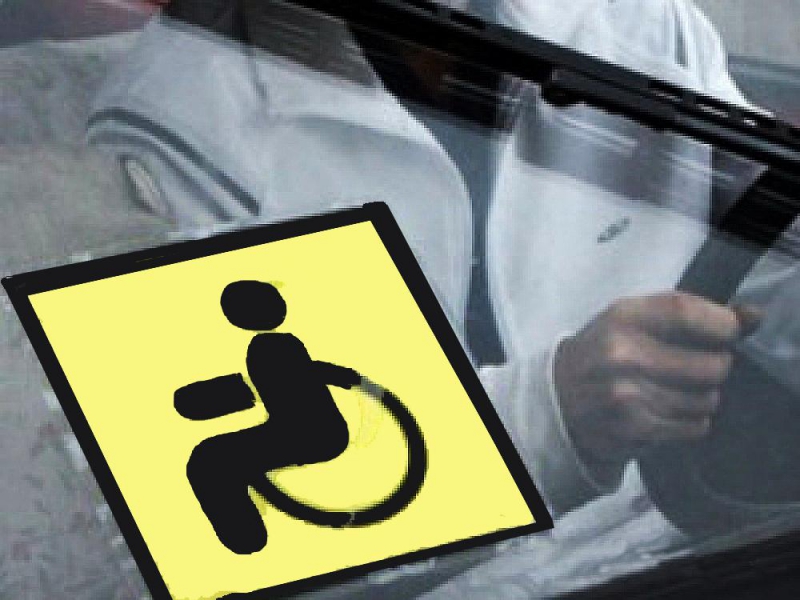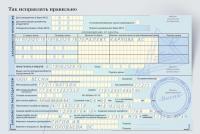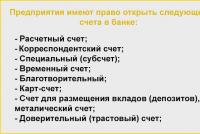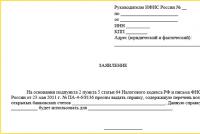Transport tax benefits for disabled people
Vehicle tax refers to a category of taxes paid annually that is assessed on each vehicle registered in the name of the taxpayer. In general, TN is regulated by Chapter 28, Section IX of the Tax Code of the Russian Federation.
Some categories of citizens, at the discretion of local authorities of constituent entities of the Russian Federation, may be fully or partially exempt from tax for one or more vehicles subject to taxation. This category includes people with disabilities.
Dear readers! Our articles talk about typical ways to resolve legal issues, but each case is unique.
If you want to know how to solve exactly your problem - contact the online consultant form on the right or call +7 (499) 350-94-53. It's fast and free!
In contact with
Law on payment of TN by disabled people
 Transport tax belongs to the regional category, i.e. it is primarily regulated by the laws of the constituent entities of the Russian Federation, adopted on the basis of the Tax Code of the Russian Federation, Chapter 28, Section IX (Regional taxes and fees). The Tax Code of the Russian Federation speaks about the rules for calculating TN only in general terms; it also sets the limits within which TN can be accrued.
Transport tax belongs to the regional category, i.e. it is primarily regulated by the laws of the constituent entities of the Russian Federation, adopted on the basis of the Tax Code of the Russian Federation, Chapter 28, Section IX (Regional taxes and fees). The Tax Code of the Russian Federation speaks about the rules for calculating TN only in general terms; it also sets the limits within which TN can be accrued.
Subjects of the Russian Federation are free to provide various benefits one or another category of the population. The category of disabled people, according to the Federal Law "On Social Protection of Disabled Persons in the Russian Federation", includes persons with persistent health problems that cause restrictions on their ability to engage in various types of activities, which include the ability to self-service, move, communicate, control behavior, carry out work and study .
To establish disability the person must undergo examination at a state medical and social institution.
Each person recognized as disabled is assigned a certain category of disability.
Disabled people of group I- persons who require the help of outsiders and have completely lost one or all abilities: for independent care, for communication, for orientation in space, for movement, for control of their actions.
Disabled people of group II - persons who have partially retained one or all capabilities: to independent maintenance, to independent movement, to learning, to control one’s actions, to communication, to work, but requiring constant assistance from others and (or) special equipment, and, in addition, special conditions for the implementation of their activities.
Disabled people of group III - persons with chronic health problems, only to some extent limiting their ability to engage in various vital activities, as a result of which they are forced to resort to the help of outside or special means, and also require the creation of special conditions for the implementation of their activities.
 Disabled child- a citizen under 18 years of age, for whom a medical and social examination has established persistent health problems that significantly limit their ability to carry out full life activities.
Disabled child- a citizen under 18 years of age, for whom a medical and social examination has established persistent health problems that significantly limit their ability to carry out full life activities.
In addition, legislation often considers as separate categories persons who have become disabled as a result of special circumstances: for example, many laws deal with citizens who received disabilities as a result of participating in the liquidation of the consequences of the Chernobyl accident, disabled participants of the Second World War. Separate benefits may be provided for such categories.
Transport tax benefits for disabled people of groups 1, 2, 3 are valid mainly in all regions of the Russian Federation, however, this is not a mandatory rule, so in each individual case it is necessary to check the laws adopted by local legislative authorities, or seek advice from local tax authorities organs.
To receive TN benefits due to disability you must independently contact the regional tax office with a written application and attached copies of all required documents confirming the right to receive benefits.
In Moscow, transport tax benefits are regulated by Art. 4 clause 1 of Moscow Law No. 33. Benefits apply to disabled people who are eligible for TN benefits, include such categories as: disabled people of the Great Patriotic War (clause 4, clause 1), disabled combatants (clause 5, clause 1), disabled people of groups I and II (clause 6, clause 1), persons injured as a result of exposure to radiation on them (clause 13 clause 1), including as a result of the Chernobyl disaster (clause 11 clause 1).
Beneficiaries also include parents (guardians) of a disabled child (clause 8, paragraph 1), parents (guardians) of a person disabled since childhood, who was declared legally incompetent (clause 14, paragraph 1).
Benefits are provided for one vehicle registered in the name of the taxpayer with an engine power of up to 200 hp installed on it. In the case of parents or guardians of a disabled child or a person disabled since childhood the benefit is provided to only one parent or guardian. According to clause 3, benefits cannot apply to watercraft, aircraft, motorized sleds and snowmobiles.
 In St. Petersburg according to Art. 4-1 of the Law of St. Petersburg No. 487-53, disabled people of the Second World War, combat operations, groups I, II and III, persons who may have health problems due to exposure to radiation as a result of the Chernobyl disaster, participation in tests or operations to eliminate nuclear accidents at military facilities, during tests at the Semipalatinsk test site, during the Mayak accident and the release of radiation-contaminated waste into the Techa River.
In St. Petersburg according to Art. 4-1 of the Law of St. Petersburg No. 487-53, disabled people of the Second World War, combat operations, groups I, II and III, persons who may have health problems due to exposure to radiation as a result of the Chernobyl disaster, participation in tests or operations to eliminate nuclear accidents at military facilities, during tests at the Semipalatinsk test site, during the Mayak accident and the release of radiation-contaminated waste into the Techa River.
A tax benefit can be granted for one vehicle with an engine power of up to 150 hp. or released more than 15 years ago.
Provided benefits
In general, the tax is charged exclusively on vehicles specified in Art. 358 NK. In paragraph 2 of paragraph 2, passenger cars designed and equipped for disabled people or equipped with an engine with a power of up to 100 hp are excluded from them. and issued by social authorities.
Usually, benefits for individuals who are disabled are provided for vehicles intended for personal or family use, i.e. cars, motorcycles (motor scooters).
Sometimes light water vehicles are added to them(boats, motor boats), as well as low-power trucks.
Special case: parents of disabled children
 Parents of disabled children, according to the legislation of the Russian Federation (Federal Law “On Social Protection of Disabled Persons in the Russian Federation”) are classified as citizens entitled to social protection and provision of various types of benefits. However, since the Tax Code of the Russian Federation regulates the rules for establishing transport taxation only in a very general form, in each individual case it is necessary to refer to the list of laws adopted in one or another subject of Russia.
Parents of disabled children, according to the legislation of the Russian Federation (Federal Law “On Social Protection of Disabled Persons in the Russian Federation”) are classified as citizens entitled to social protection and provision of various types of benefits. However, since the Tax Code of the Russian Federation regulates the rules for establishing transport taxation only in a very general form, in each individual case it is necessary to refer to the list of laws adopted in one or another subject of Russia.
In Moscow, for one parent (guardian) according to Art. 4 of Moscow Law No. 33 establishes the right to tax exemption for one vehicle with an engine installed on it with a power of up to 200 hp. Excluded from the list of possible vehicles snowmobiles, motorized sleds, vehicles designed for movement by air or water.
In St. Petersburg, for one parent or guardian of a disabled child under Art. 4-1 of the Law of St. Petersburg No. 487-53, a 100% tax benefit can be assigned to a vehicle with an engine installed on it up to 150 hp. or for a vehicle manufactured more than 15 years ago.
Parents of a disabled child can count on receiving transport tax benefits, but in each individual case they must familiarize themselves with the tax legislation in force in their region of residence.
Laws adopted in relation to TN put different categories of disabled people living in different regions of the Russian Federation in an unequal position. So, on the territory of one subject of the Russian Federation for disabled people of all categories, a complete exemption from TN for most types of vehicles can be accepted, while in another region the exemption is valid only for special cases, such as disabled people of categories I and II, disabled people of the Second World War and military operations, liquidation of the consequences of the Chernobyl disaster, etc.
But in some regions of the Russian Federation, parents of disabled children do not pay transport tax at all, that is, they are exempt from payment by local authorities.






